
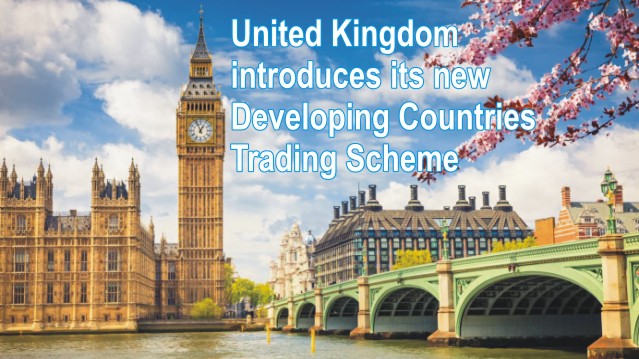
IT’S BEEN THREE YEARS since the UK left the EU, the largest trading block in Europe, to become a “prosperous, dynamic and contented” country, as exclaimed by the former prime minister Boris Johnson who signed the Brexit deal.
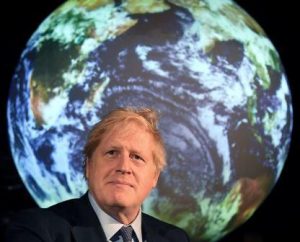
He went on to explain jubilantly that the Brexit deal would enable UK companies to “do even more business” with the European Union, and would leave Britain free to strike trade deals around the world while continuing to export seamlessly to the EU market of 450 million consumers.
But in reality, Brexit has led the UK economy to shambles, with an economy smaller than it was before the pandemic. Years of uncertainty over the future trading relationship with the European Union, Britain’s largest trading partner, have damaged business investment, which last year was 8% below pre-pandemic levels despite a UK-EU trade deal being in place for nearly two years.
And the pound has taken a beating, making imports more expensive and stoking inflation while failing to boost exports, even as other parts of the world have enjoyed a post-pandemic trade boom.
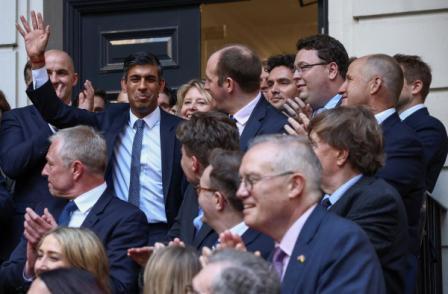 In this background to bring the British economy back on rails the Conservatives led by Rishi Sunak have once again unveiled plans to give a boost to its economy and increase its bilateral trade with other nations, mainly its erstwhile colonies.
In this background to bring the British economy back on rails the Conservatives led by Rishi Sunak have once again unveiled plans to give a boost to its economy and increase its bilateral trade with other nations, mainly its erstwhile colonies.
The manner in which this new plan was unveiled in Ethiopia’s capital Addis Ababa by the Minister for International Trade, Nigel Huddleston, shows that this time the UK is banking on increasing its economic ties with African and least developed nations, so that in detailed monetary trade pacts it could extract its pound of flesh successfully and be able to justify ‘Great’ once again in ‘Great Britain’.
The new scheme, Developing Countries Trading Scheme (DCTS) was announced earlier this week. It aims to cut tariffs on products entering the UK from 65 developing countries, besides helping reduce import costs by over £770m per year, benefiting UK consumers and businesses. From its launch date the DCTS aims to radically simplify trading rules and cut tariffs on products from developing countries, saving UK businesses and consumers millions of pounds a year.
The new post-Brexit DCTS covers 65 countries that are home to over 3.3 billion people, and over half of them are in Africa. It removes or reduces tariffs and simplifies trading rules so that more products qualify for the scheme, making it more generous than the EU scheme the UK was previously a member of. It will benefit developing countries looking to diversify and increase exports, driving their prosperity and reducing their need for aid.
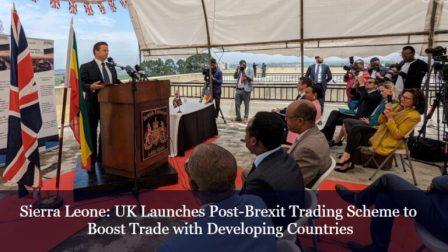 It is claimed that DCTS will save UK businesses over £770 million per year by removing or cutting tariffs on over £9 billion of imports – increasing choice for UK consumers and potentially reducing prices on a wide variety of items such as clothes, food and children’s toys – as well as creating opportunities for UK businesses to trade internationally and grow the UK economy.
It is claimed that DCTS will save UK businesses over £770 million per year by removing or cutting tariffs on over £9 billion of imports – increasing choice for UK consumers and potentially reducing prices on a wide variety of items such as clothes, food and children’s toys – as well as creating opportunities for UK businesses to trade internationally and grow the UK economy.
Over time, were developing countries to increase trade with the UK under the scheme, businesses could save millions more on import costs.
Ethiopia, which already has a trading relationship with the UK worth £838 million, pays zero tariffs on 100% of goods exported to the UK. Under the new scheme, Ethiopia and 46 other countries will be able to produce goods using components from many more countries, growing their opportunities to trade with the UK.
According to FCDO’s Minister for Africa, Andrew Mitchell, the DCTS, shows how we can use trade to deliver development. It will benefit traders around the world, including small and women-owned businesses which we are supporting through UK Trade Partnership programme.
The scheme benefits businesses all over the world and British companies that trade with these countries in everyday products such as bicycles and camping gear.
Moreover it is claimed that the further liberalisation and rule options that have been introduced under the DCTS are incredibly helpful and will support business and economic growth in some of the poorest countries.
A great example of this is camping equipment, such as tents, from developing countries in Southeast Asia. DCTS covers 37 countries in Africa, 26 in Asia/Oceania/Middle East and 2 in the Americas, representing varied and exciting trade opportunities around the world.
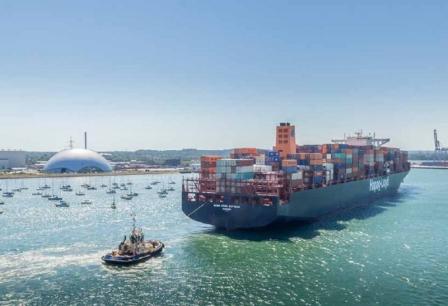 The UK imported an average of £22.8 billion worth of goods from DCTS countries over the last three years. When combined with the UK’s network of 8 Economic Partnership Agreements, the DCTS means over 90 developing countries now benefit from duty-free or nearly duty-free trade.
The UK imported an average of £22.8 billion worth of goods from DCTS countries over the last three years. When combined with the UK’s network of 8 Economic Partnership Agreements, the DCTS means over 90 developing countries now benefit from duty-free or nearly duty-free trade.
Customs processes will remain the same as under current preferential trading arrangements but new tariffs and rules of origin for Least Developed Countries will apply.
This decision by the UK government is likely to impact Indian exporters from labour-intensive sectors, including certain textile items, leather goods, carpets, iron & steel goods and chemicals, according to experts and traders.
Global Trade Research Initiative (GTRI) said the US, European Union (EU), Australia, Japan and many other developed countries grant unilateral import duty concessions to developing countries under their GSP schemes.
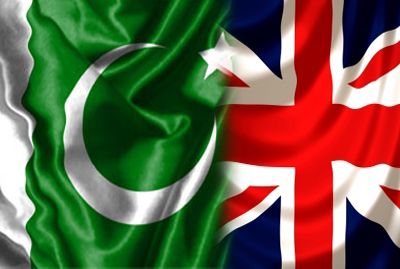 Under the new scheme, Pakistan has retained its enhanced preferences status and will continue to benefit from duty-free exports to the UK on 94pc of goods exported.
Under the new scheme, Pakistan has retained its enhanced preferences status and will continue to benefit from duty-free exports to the UK on 94pc of goods exported.
It will also remove tariffs on over 156 additional products, and simplify some seasonal tariffs. The total volume of trade in goods and services between the UK and Pakistan each year currently stands at £4.4 billion ($5.63 billion).
It is expected that £120 million ($153.6 million) in tariffs will be saved on exports to the UK under the scheme. The international trading system through the UK’s Trade Centre of Excellence, will provide specialist support for participating in the global trading system.
However, the place of announcement and the targetted countries leads one to believe that this time around the British lawmakers are once again trying to revive their sagging economy through their erstwhile colonies and in this too most African nations are due to play a leading role. ![]()
___________
Also Read:
Drug Menace Cannot Be Addressed Without Addressing the Root Cause of Supply Chain
Deliberate Destruction of Indian Railways
Mughal Gardens – Name Changed, But Why?
Will SC Order Be Implemented When There Is Political Patronage For Hate Speech?
Time to build on synergy of ground energy & politics
Punjab – How a deadly cocktail of Agri-Water-Energy nexus going to destroy it?

Disclaimer : PunjabTodayTV.com and other platforms of the Punjab Today group strive to include views and opinions from across the entire spectrum, but by no means do we agree with everything we publish. Our efforts and editorial choices consistently underscore our authors’ right to the freedom of speech. However, it should be clear to all readers that individual authors are responsible for the information, ideas or opinions in their articles, and very often, these do not reflect the views of PunjabTodayTV.com or other platforms of the group. Punjab Today does not assume any responsibility or liability for the views of authors whose work appears here.
Punjab Today believes in serious, engaging, narrative journalism at a time when mainstream media houses seem to have given up on long-form writing and news television has blurred or altogether erased the lines between news and slapstick entertainment. We at Punjab Today believe that readers such as yourself appreciate cerebral journalism, and would like you to hold us against the best international industry standards. Brickbats are welcome even more than bouquets, though an occasional pat on the back is always encouraging. Good journalism can be a lifeline in these uncertain times worldwide. You can support us in myriad ways. To begin with, by spreading word about us and forwarding this reportage. Stay engaged.
— Team PT


Copyright © Punjab Today TV : All right Reserve 2016 - 2024 |